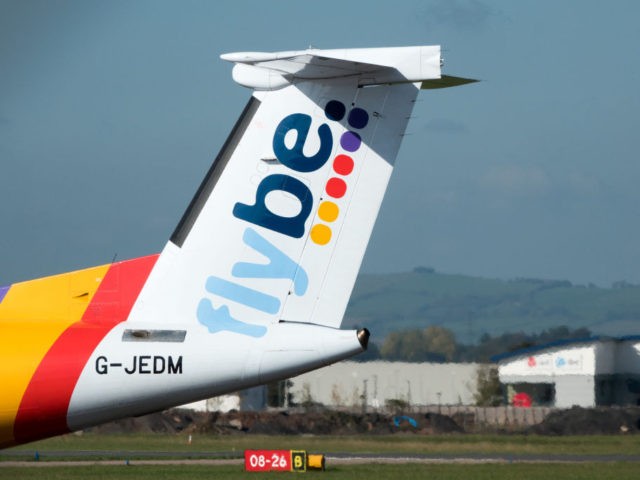British airline Flybe went into administration in the early hours of Thursday morning, after the fall of airline bookings caused by the coronavirus scare impacted its revenue.
Flybe, a budget airline which focussed on connecting regional British cities with otherwise long journey times by sea, road, or rail, as well as flying to a limited number of European destinations, was already suffering from a precarious financial position but appears to have been pushed over the edge by coronavirus suppressing bookings.
All flights by the airline have been cancelled and all its aircraft have been impounded, while most of its 2,400 staff have been made redundant. While stranded passengers have been asked to find their own ways home, major UK airline British Airways announced on Thursday morning that it would offer special cut-price fares to Flybe customers, and rescue stranded Flybe staff for free.
The West Midlands Railway and London North Western Railway will both allow stranded Flybe customers to travel home for free on their services.
The collapse comes as the airline industry warns that coronavirus is causing the first fall in demand for air travel in over a decade, since the 2008 financial crisis. The International Air Transport Association (Iata) has warned coronavirus is expected to cut demand for flights globally by 4.7 per cent and cost the industry £23.7 billion in 2020, reports The Guardian.
A further report notes because businesses are preventing their managers from travelling and global trade fairs are being cancelled, the most profitable business class passengers are no longer propping up the bottom line for many global carriers, and the impact of coronavirus on global air travel could be more pronounced than the aftermath of the 9/11 attacks.
Flybe, whose consortium of owners includes Richard Branson’s Virgin Atlantic airline, came close to collapse in January over an unpaid green-tax bill. Keen to save the airline which occupied a reasonably unique place in the British aviation industry, given its concentration on linking regional airports and operating flights between the four home nations of the United Kingdom, the government entered talks over either deferring the tax or scrapping it altogether.
Because Flybe served these regions, there was also a widespread perception that saving the airline would chime well with Boris Johnson’s commitment to spreading opportunity to all parts of the country, not just to London. A decision on whether to cut or scrap air passenger duty, a levy intended to offset the environmental impact of flying which nets the government billions of pounds a year, is due at the budget statement next week — too late for Flybe.
Two months after the first brush with collapse, hopes of saving the airline vanished as the sudden plunge in booking levels being blamed on coronavirus made it appear no longer viable. Talks to secure a financial lifeline for the airline were inconclusive on Wednesday.
Transport secretary Grant Shapps said while the government had tried to save the airline, ultimately they had not been successful. He said: “Unfortunately, with the situation that has developed with [coronavirus], an already weak company, I’m afraid, just hasn’t been able to survive.”
The Times reports the remarks of administrators who said the coronavirus had made “a difficult situation worse” for the already imperilled airline, and those of the company’s chief executive who said the company had made “every possible attempt” at avoiding collapse but now it had, “The UK has lost one of its greatest regional assets.”

COMMENTS
Please let us know if you're having issues with commenting.